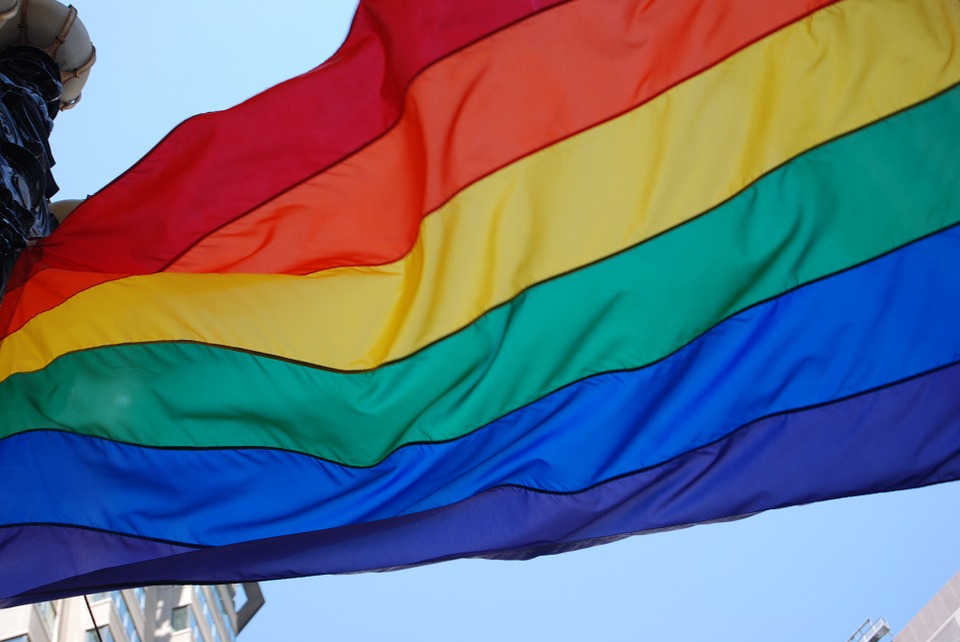American News
Struggle for transgender rights shifts to health care

The Health and Human Services Department rule dates to the Obama administration, a time when LGBT people gained political and social recognition. But a federal judge in Texas said the rule went too far by concluding that discrimination on the basis of gender identity is a form of sex discrimination, which is forbidden by civil rights laws. (Pixabay photo)
WASHINGTON — Military service. Bathroom use. Job bias. And now, health care.
The Trump administration is coming under fire for rewriting a federal rule that bars discrimination in health care based on “gender identity.” Critics say it’s another attempt to undercut acceptance for transgender people.
The Health and Human Services Department rule dates to the Obama administration, a time when LGBT people gained political and social recognition. But a federal judge in Texas said the rule went too far by concluding that discrimination on the basis of gender identity is a form of sex discrimination, which is forbidden by civil rights laws.
Instead of appealing the judge’s injunction, the Trump administration has opted to rewrite the rule, which applies to health care providers and insurers receiving federal funds.
Roger Severino, head of the department’s Office for Civil Rights, said the rewrite will address the “reasonableness, necessity and efficacy” of the Obama-era requirement. He refused to discuss specifics, as the revision is under White House review before its official release.
Groups representing transgender people expect the Obama protections to be gutted and are preparing to take the administration to court.
“The proposed rollback does fit into a pattern of transphobia and anti-LGBT sentiment in this administration,” said Omar Gonzalez-Pagan, a lawyer with Lambda Legal, a civil rights organization.
He ran through a checklist: President Donald Trump’s call to bar military service by transgender people; Attorney General Jeff Sessions’ memo concluding that civil rights laws don’t protect transgender people from discrimination on the job; the override of Obama-era guidance that allowed transgender students to use school bathrooms that matched their gender identities.
Social and religious conservatives are one of the administration’s most steadfast constituencies, and the White House has been out front championing their causes, including restrictions on abortion and legal protections for health care providers with moral and religious qualms about particular procedures.
Behind the latest health care dispute is a medically recognized condition called “gender dysphoria” — discomfort or distress caused by a discrepancy between the gender that a person identifies as and the gender at birth. Consequences can include severe depression. Treatment can range from sex-reassignment surgery and hormones to people changing their outward appearance by adopting a different hairstyle or clothing.
Under the Obama-era rule, a hospital could be required to perform gender-transition procedures such as hysterectomies if the facility provided that kind of treatment for other medical conditions. The rule was meant to carry out the anti-discrimination section of the Affordable Care Act, which bars sex discrimination in health care but does not use the term “gender identity.”
In the Texas case, a Catholic hospital system, several states and a Christian medical association argued that the rule went beyond the law as written and would coerce providers to act against their medical judgment and religious beliefs.
That rule “would have forced doctors to perform gender transition procedures on children, even if that would be against their best medical judgment and they believed it would be harmful to the child,” said Luke Goodrich, a lawyer with the Becket Fund for Religious Liberty, which is involved in the case.
The American Academy of Pediatrics says that for children who have yet to reach puberty, gender transition does not involve any medical interventions but instead focuses on social changes such as clothing and calling the child by another name.
The Becket Fund responded that the Obama administration did not limit the application of its nondiscrimination rule to adults.
UCLA legal scholar Jocelyn Samuels oversaw drafting of the anti-discrimination rule while in the Obama administration and says it reflected established legal precedent that transgender people are protected under federal sex discrimination laws. “The case law on whether sex discrimination includes gender identity has been pretty clear for quite a while,” said Samuels.
The original rule did not override either the medical judgment or religious beliefs of providers, said Samuels, arguing those are protected by other laws.
The timetable for the Trump administration’s proposed changes is uncertain, but the rewrite isn’t likely to settle the debate. The transgender controversy could follow the path of other Trump initiatives to the Supreme Court. ACLU attorney Joshua Block said five federal appeals courts have ruled that discrimination based on gender identity violates federal laws against sex discrimination.
In Congress, a GOP advocate for transgender rights is urging the administration to re-evaluate. Rep Ileana Ros-Lehtinen, R-Fla., came to the U.S. from Cuba as a child.
“I fled from a communist regime to come to this land of opportunity and freedom, where if you work hard and are a responsible member of society, you have the ability to get ahead,” said Ros-Lehtinen. “That principle should apply to anyone, including transgender Americans. I urge the administration to guide its policies under the premise of freedom, opportunity and equality.”
One of Ros-Lehtinen’s children is a transgender man.





















